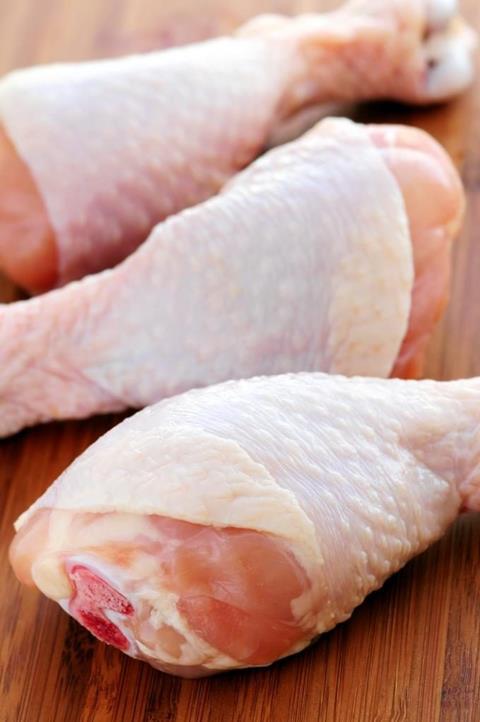The Food Standards Agency (FSA) has pledged to reduce the use of antimicrobials in food production animals, following a study commissioned by Save our Antibiotics, which claimed high levels of antibiotic resistant e.coli bacteria were found in UK supermarket chicken and pork meat.

In light of the study’s results an FSA spokesperson commented: “AMR (antimicrobial resistance) is a significant threat to public health in the future and consumer safety is a priority for the FSA. Working with others across Government, and with food producers, we aim to reduce the use of antimicrobials in food production animals.
“An important part of that will be work with food manufacturers, assurance schemes and retailers to develop standards for the responsible use of antibiotics in poultry, pig and dairy sectors. We are already testing meats and other produce for AMR and these results will be published soon.”
A joint statement from the British Veterinary Association (BVA), British Poultry Veterinary Association (BVPA) and the Pig Veterinary Society added: “The veterinary profession recognises that antimicrobial resistance is a global problem for both humans and animals, so is working hard with companion animal owners, livestock farmers and other species stakeholders to promote the responsible use of antibiotics.
“Antimicrobials are crucial for the maintenance of animal health and welfare, and there are many innovative and important developments happening in the poultry, pig and other sectors to promote good practice for antibiotic use in animals, and to explore alternative measures. It is essential that we learn from and share this best practice across the UK and beyond.
“The reduced and targeted use of antibiotics in animal agriculture is just one piece of the jigsaw when tackling AMR and we need to foster increased collaboration between health sectors – with the veterinary profession committed to playing its part – to ensure positive steps are taken to preserve these essential drugs for future generations.”
This story was originally published on a previous version of the Meat Management website and so there may be some missing images and formatting issues.















